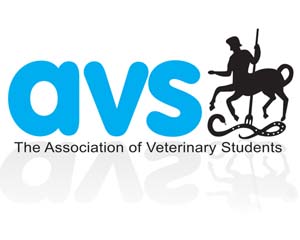31 October 2016
Stress has dropped for students but studies biggest worry
Findings from this year's British Veterinary Association (BVA)/Association of Veterinary Students (AVS) Survey 2016 (1.37MB PDF) indicate that the just under two-thirds (63%) of veterinary students are currently suffering or have suffered from stress whilst at university.
In the BVA/AVS Survey 2012, sponsored by Vets4Pets, also revealed that over a quarter (27%) of veterinary students are currently suffering from or have suffered from depression whilst at university. The majority of students who have suffered or are currently suffering from mental health issues (83%) claim their studies, including deadline pressures, contribute to or trigger these issues. Other contributions or triggers cited included:
- Lack of free time (58%)
- Relationship or family issues (44%)
- Other financial worries (39%)
- Stress of finding extra-mural studies (EMS) placements (34%)
- The cost of EMS (23%)
- Having to work as well as study (19%)
- Other (10%)
However, university efforts to improve welfare support for students may be having an impact. Just under three quarters (71%) of survey respondents say they feel supported in terms of welfare and wellbeing by their university. In recent years, the veterinary profession has taken collective responsibility for mental wellbeing at every stage of a vet's career, with a number of initiatives being available to help and support students. These range from the counselling and peer mentoring services available through individual universities to the confidential support offered by the independent charity Vetlife through its helpline, health support programme and fund for financial support.
Earlier this year BVA announced expansion of its support for young vets and the RCVS-led Mind Matters initiative aims to work with the Vet Futures project to identify how certain aspects of the way the profession is structured and run can exacerbate stress and mental health problems, starting with the experience of veterinary students.
The BVA/AVS survey also shows that there is a range of factors that affect students, including financial pressures. Over a third of veterinary students work part time to supplement their income and just under half of students say they usually have less funds than they need. Those with a shortfall estimate it to be around £1,231 per term on average.
Hannah Mason, President of the Association of Veterinary Students, said:
“There is no escaping that veterinary medicine is a challenging degree. On top of strenuous exams, holidays are filled with compulsory EMS making it hard to sustain part-time work which is often needed to supplement the expense of a five or six year degree. It is therefore no surprise that stress is a problem in the vet student population. The majority of vet students still report having suffered at some point during their degree. We now have various counselling services and peer support systems across the universities to help students to cope better. However, while it is important to have reactive strategies in place, we also need to examine the fundamental reasons why vet students are stressed and how we can prevent it from occurring."
Gudrun Ravetz, President of the British Veterinary Association, said:
“Any veterinary student feeling stressed, under pressure and unable to cope is one too many. The truth is that there will be pressure in the work we do and there will be times that we feel stressed. Veterinary medicine university courses are tough and that is reflected in studies being the number one contributor to mental health and wellbeing concerns in the survey. But as a veterinary family, we need to help our colleagues to cope from the earliest stages of their career and make the right resources available to them, along with creating the right kind of supportive culture. We also need to recognise and work on solutions for what can be a toxic mixture of a highly demanding course, little leisure time and huge financial pressure. It is the responsibility of everyone in the profession to nurture a robust, skilled, compassionate and happy new generation of vets.”
This article has been updated from an earlier version
to reflect changes in methodology between the 2012 and 2016 surveys.



